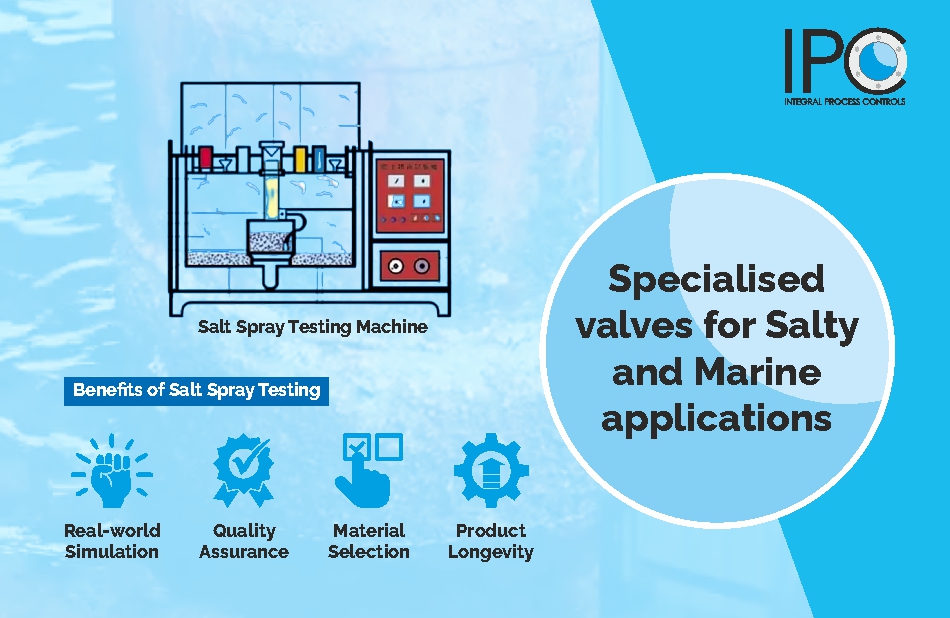Valves operating in salt water environments face several challenges and risks due to the corrosive nature of salt. Typically Valves used in applications like marine, offshore and chemical processing are more prone to corrosion resulting from salty water and salt laden atmosphere.
Here are some key factors that make valves in salt-prone environments more valves vulnerable:
Corrosion: Salt water is highly corrosive and it can accelerate the corrosion of metals. Valves made of materials that are not resistant to corrosion may experience quick degradation, leading to leaks and reduced functionality.
Saltwater Spray: In marine or coastal environments, valves may be exposed to saltwater spray. The constant exposure to saltwater mist can lead to the accumulation of salt deposits on the valve surfaces, further contributing to corrosion.
Electrochemical Corrosion (Galvanic Corrosion): When different metals are in contact in the presence of saltwater, galvanic corrosion can occur. This happens when an electric current flows between dissimilar metals, leading to accelerated corrosion of one of the metals. Proper material selection and corrosion-resistant coatings can help mitigate this risk.
Abrasion: Salt water often carries abrasive particles, such as sand or sediment. These particles can cause abrasion and wear on valve components, affecting their performance and longevity.
One test that comes to help of valve manufacturer is Salt Spray testing. This test helps manufacturers with real life simulation, quality assurance, material selection and product longevity.
What is Salt Spray testing?
Salt spray testing, also known as salt fog testing, is a corrosion test method used to evaluate the corrosion resistance of materials and coatings, particularly in environments where exposure to salt-laden air is a concern. The purpose is to simulate the corrosive conditions that valves may face, especially in marine or coastal settings where salt water is prevalent.
Observations
Throughout the testing period, the valves are observed for signs of corrosion, such as rust or other forms of degradation. After the designated exposure period, the valves undergo thorough inspection and evaluation.
Benefits of Salt Spray Testing
- Real-world Simulation: Salt spray testing replicates the corrosive conditions valves might encounter in marine or coastal environments. This realistic simulation allows manufacturers like IPC to assess how well their valves will withstand these challenging conditions.
- Quality Assurance: By subjecting valves to rigorous salt spray testing, IPC ensures that their products meet and exceed industry standards for corrosion resistance. This quality assurance step is crucial for delivering reliable valves to customers.
- Material Selection: Salt spray testing aids in the selection of materials that demonstrate superior corrosion resistance. IPC can use the insights gained from these tests to choose materials that will enhance the longevity and performance of their valves.
- Product Longevity: Valves that pass salt spray testing are more likely to have extended service lives, reducing the frequency of replacements and maintenance. This longevity is a significant advantage for end-users looking for durable and cost-effective solutions.
At IPC, we do not leave any stone unturned to ensure our valves are above what industry demands. Our Salt spray testing for valves don’t only stand test of time in salty environment but ensure reliable, consistent and durable performance.

